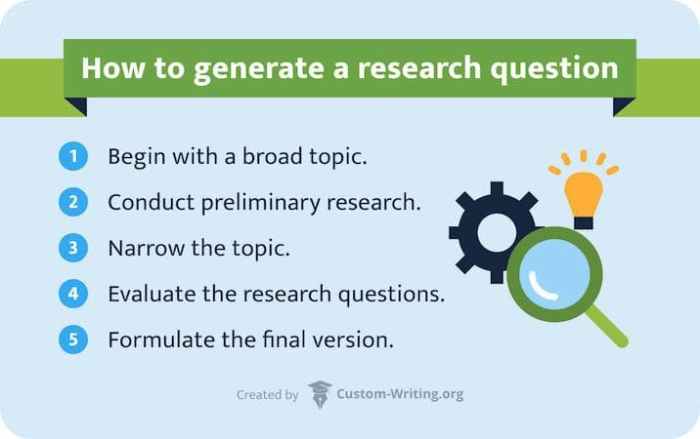
What is the law in the Bible? This question delves into a fascinating world of ancient laws, moral codes, and spiritual principles that have shaped cultures and influenced legal systems throughout history. The Bible, a collection of sacred texts, offers a unique perspective on justice, mercy, and the relationship between humanity and a higher power. Examining the laws within its pages reveals a complex tapestry of societal guidelines, ethical directives, and spiritual teachings that continue to resonate with readers today.
From the Ten Commandments to the teachings of Jesus, the Bible presents a wide range of laws and principles that address various aspects of human life, including personal conduct, social interactions, and religious practices. Understanding these laws requires considering their historical context, cultural nuances, and evolving interpretations throughout the centuries. This exploration will delve into the different types of laws found in the Bible, their influence on legal systems, and their enduring relevance in a modern world.
The Bible as a Source of Law

The Bible, a collection of sacred texts revered by Judaism and Christianity, contains a rich body of legal and ethical principles that have influenced societies and legal systems for centuries. Understanding the different types of laws found within its pages and their historical context is crucial for comprehending its enduring impact.
Types of Laws in the Bible
The Bible encompasses a diverse array of legal principles that can be categorized into three primary types: moral, ceremonial, and civil.
- Moral Law: These laws reflect universal ethical principles that are considered binding on all people, regardless of their cultural or religious background. Examples include the Ten Commandments, which prohibit murder, theft, adultery, and lying. These laws are grounded in the fundamental principles of justice, compassion, and righteousness.
- Ceremonial Law: These laws pertain to rituals, sacrifices, and practices specific to the ancient Israelite religion. Examples include the rules governing the Sabbath, dietary restrictions, and the procedures for offering sacrifices. These laws were designed to maintain the purity and sanctity of the Israelite community and their relationship with God.
- Civil Law: These laws govern the social, economic, and political life of the Israelite community. Examples include laws regarding property ownership, inheritance, contracts, and criminal justice. These laws provided a framework for maintaining order and justice within the society.
Historical Context of Biblical Law
Biblical law was developed within the specific historical and cultural context of ancient Israel. The laws found in the Bible reflect the values, beliefs, and social structures of the time. For instance, the laws concerning slavery and women’s rights were shaped by the prevailing social norms of the ancient Near East. It is important to recognize that these laws were not intended to be timeless and unchanging, but rather to address the specific needs and challenges of the Israelite people in their historical context.
Influence of Biblical Law
The influence of biblical law on legal systems throughout history is undeniable. Many Western legal systems, particularly those rooted in the common law tradition, have incorporated biblical principles into their legal frameworks. For example, the concept of natural law, which posits that certain moral principles are inherent in human nature and can be discerned through reason, finds its roots in biblical teachings. The emphasis on justice, fairness, and compassion, which are central to biblical law, has also shaped the development of legal systems around the world.
“You shall not steal.” – Exodus 20:15
“Love your neighbor as yourself.” – Matthew 22:39
These biblical principles continue to resonate in legal systems and ethical discussions today, demonstrating the enduring impact of the Bible as a source of law and moral guidance.
Key Concepts in Biblical Law
The Bible, as a source of law, is not simply a collection of rules and regulations. It’s a rich tapestry of moral and ethical principles that provide a framework for understanding justice, mercy, and the relationship between God and humanity. Key concepts like justice, mercy, forgiveness, covenant, and redemption are interwoven throughout biblical narratives and legal pronouncements, shaping a unique legal philosophy.
Justice in Biblical Law
Justice in the Bible is not merely about fairness or impartiality. It encompasses a broader vision of righteousness, encompassing the restoration of order and the pursuit of what is right and true. This concept is deeply rooted in the character of God, who is described as a God of justice and righteousness.
“The Lord is righteous in all his ways and loving in all his works.” (Psalm 145:17)
The Bible emphasizes the importance of seeking justice for the oppressed, protecting the vulnerable, and upholding the rights of the marginalized.
“Do not pervert justice; do not show partiality to the poor or favoritism to the great, but judge your neighbor fairly.” (Leviticus 19:15)
This principle is reflected in various legal pronouncements, including laws regarding the treatment of slaves, the protection of widows and orphans, and the punishment of those who exploit the weak.
The concept of justice in the Bible has significant implications for legal systems. It calls for a system that not only seeks to punish wrongdoers but also seeks to restore harmony and right the wrongs that have been committed.
Mercy and Forgiveness in Biblical Law
Mercy and forgiveness are central themes in biblical law. They represent a radical departure from the retributive justice systems of the ancient world, where punishment was often harsh and unforgiving. The Bible emphasizes God’s mercy and forgiveness, urging humans to extend the same grace to others.
“Be merciful, just as your Father is merciful.” (Luke 6:36)
The concept of forgiveness is closely linked to the idea of redemption. Through God’s grace, individuals can be forgiven for their sins and restored to a right relationship with him. This principle is exemplified in the story of the prodigal son, where the father welcomes his repentant son back with open arms.
“For I desire mercy, not sacrifice, and knowledge of God rather than burnt offerings.” (Hosea 6:6)
This emphasis on mercy and forgiveness in biblical law challenges legal systems to move beyond simply punishing offenders and to consider the possibility of rehabilitation and restoration.
Covenant and Redemption in Biblical Law
The concept of covenant plays a crucial role in shaping biblical legal thought. A covenant is a sacred agreement between God and humanity, outlining the terms of their relationship and the obligations they have towards each other.
The covenant between God and Abraham is a foundational example. God promised to bless Abraham and his descendants, making them a great nation. In return, Abraham was to obey God’s commands and live a life of faith.
“I will establish my covenant with you and with your descendants after you throughout their generations to be an everlasting covenant, to be God to you and your descendants after you.” (Genesis 17:7)
The concept of redemption is closely intertwined with the covenant. Redemption refers to the act of being bought back or set free from slavery or bondage. In biblical law, God is seen as the ultimate redeemer, who sets humanity free from sin and death through his sacrifice.
“For the wages of sin is death, but the gift of God is eternal life in Christ Jesus our Lord.” (Romans 6:23)
The covenant and redemption themes in biblical law emphasize the importance of God’s grace and mercy. They also highlight the transformative power of God’s love and the potential for renewal and restoration.
Specific Laws in the Bible

The Bible, particularly the Old Testament, contains a vast collection of laws that governed the lives of the Israelites. These laws covered a wide range of topics, from religious practices to social interactions, and aimed to establish a just and orderly society.
Laws in the Old Testament
The Old Testament laws can be broadly categorized into several key areas:
- The Ten Commandments: These foundational laws, found in Exodus 20:1-17 and Deuteronomy 5:6-21, Artikel fundamental moral principles that guide human behavior. They address issues such as worshipping the one true God, respecting parents, avoiding murder, theft, and adultery, and refraining from coveting others’ possessions.
- Laws Regarding Property: The Old Testament included specific laws related to property ownership, inheritance, and the protection of property rights. These laws emphasized fairness and justice in dealings with property, ensuring that individuals were treated equitably.
- Laws Regarding Family: The Bible provided guidelines for family life, including marriage, divorce, and the responsibilities of parents and children. These laws aimed to strengthen family bonds and promote stability within society.
- Laws Regarding Crime: The Old Testament also established laws concerning various crimes, including theft, murder, assault, and adultery. These laws aimed to deter crime and ensure justice for victims.
Comparison of Old Testament and New Testament Laws
While the Old Testament contains a comprehensive legal code, the New Testament focuses more on ethical principles and the teachings of Jesus. The New Testament emphasizes love, forgiveness, and compassion as the guiding principles for Christian life. However, it doesn’t entirely discard the Old Testament laws but interprets them in light of the teachings of Jesus.
For example, the Old Testament law forbidding adultery is still considered relevant in the New Testament, but Jesus expanded on this principle by emphasizing the importance of purity of heart and intention. Similarly, the Old Testament law requiring Sabbath observance is interpreted in the New Testament as a reminder of the importance of rest and spiritual renewal, rather than a strict legal obligation.
Interpretation and Application of Biblical Law, What is the law in the bible
Christian denominations have interpreted and applied biblical law in various ways throughout history. Some denominations emphasize a literal interpretation of the Bible, while others take a more nuanced approach, considering the historical context and cultural differences.
For example, the issue of divorce has been interpreted differently by various denominations. Some denominations hold a stricter view, allowing divorce only in cases of adultery, while others are more lenient, recognizing other grounds for divorce. Similarly, the interpretation of the Sabbath observance varies across denominations, with some adhering to a strict observance of the Sabbath day, while others adopt a more flexible approach.
The interpretation and application of biblical law continue to be debated within Christian communities. These discussions reflect the ongoing efforts to understand the Bible’s teachings and apply them to contemporary life.
The Bible and Morality
The Bible is a rich source of moral principles that have shaped ethical thought and behavior for centuries. These principles, often expressed through laws, stories, and teachings, offer guidance on how to live a virtuous and fulfilling life. Understanding the relationship between biblical law and personal morality is crucial for navigating ethical dilemmas and applying these principles to contemporary life.
Comparison and Contrast with Contemporary Ethical Standards
The Bible’s moral principles often align with contemporary ethical standards, advocating for values like love, compassion, justice, and truthfulness. For instance, the Ten Commandments, found in Exodus 20, condemn murder, theft, and lying, which are universally considered unethical acts in modern society. However, some biblical teachings, such as the prohibition of homosexuality or the subjugation of women, are considered outdated and discriminatory by many contemporary ethical standards. These discrepancies highlight the evolving nature of morality and the need for critical engagement with religious texts in the context of contemporary societal values.
Relationship Between Biblical Law and Personal Morality
Biblical law provides a framework for understanding and developing personal morality. For those who adhere to its teachings, the law serves as a guide for right and wrong, influencing their choices and actions. The Bible encourages individuals to internalize these principles and develop a personal conscience that guides their moral compass. However, the relationship between biblical law and personal morality is not always straightforward. Individuals may interpret and apply biblical principles differently based on their own experiences, values, and understanding of the text. Moreover, the Bible’s emphasis on grace and forgiveness allows for the possibility of personal growth and moral transformation even when individuals fall short of the law’s standards.
Role of Conscience in Interpreting and Applying Biblical Law
Conscience plays a crucial role in interpreting and applying biblical law. It serves as an internal guide, allowing individuals to discern right from wrong and make moral decisions based on their understanding of God’s will. The Bible itself acknowledges the importance of conscience, urging individuals to “test and approve what God’s will is—his good, pleasing and perfect will” (Romans 12:2). However, the Bible also warns against relying solely on one’s own conscience, emphasizing the need for guidance from scripture, community, and spiritual leaders. This interplay between personal conscience and external sources of moral authority is essential for navigating the complexities of applying biblical law to contemporary life.
Ending Remarks: What Is The Law In The Bible

The Bible’s influence on law and morality remains undeniable. While the specific application of biblical law in modern society is a subject of ongoing debate, its principles of justice, mercy, and compassion continue to inspire legal systems and guide personal conduct. As we navigate the complexities of contemporary life, understanding the wisdom and teachings embedded in the Bible’s legal framework can provide valuable insights and ethical guidance. It reminds us of the enduring importance of pursuing justice, showing compassion, and striving for a more just and equitable world.
FAQ Insights
What is the difference between the Old Testament and New Testament laws?
The Old Testament laws, primarily found in the Torah, focus on ceremonial, civil, and moral codes for the Israelites. The New Testament emphasizes love, grace, and a personal relationship with God, with Jesus’ teachings often reinterpreting or expanding upon Old Testament laws.
Is it necessary to follow all the laws in the Bible today?
This is a complex question with diverse interpretations. Some believe all biblical laws are relevant, while others prioritize specific principles or adapt them to modern contexts. It’s essential to consider the historical context, cultural nuances, and individual interpretations when applying biblical laws to contemporary life.
How does the Bible address issues like slavery and capital punishment?
The Bible contains laws regarding slavery and capital punishment, but their interpretation and application have been debated throughout history. Modern perspectives often challenge these laws, emphasizing the inherent dignity of all human beings and advocating for alternative solutions to conflict and social justice issues.




